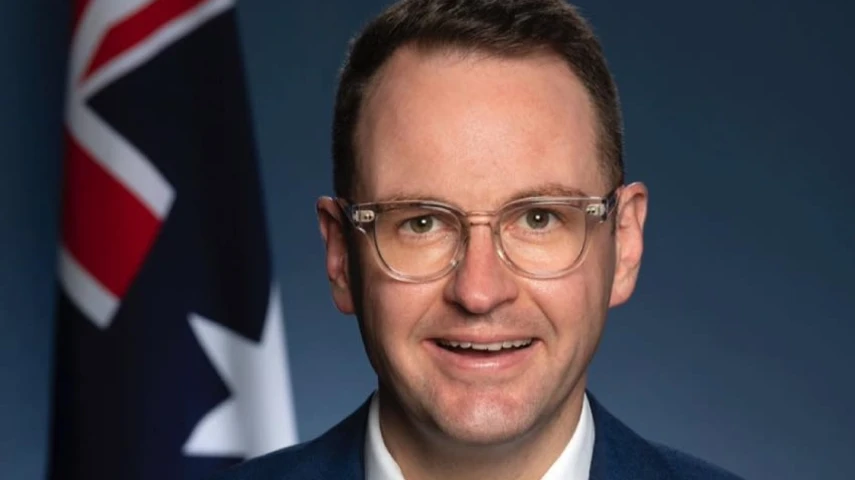Senator Bragg challenges voluntary super withdrawal data



In a recent statement, shadow assistant minister for home ownership and Liberal senator for NSW, Andrew Bragg, accused ‘big super’ of fabricating data attributed to the Reserve Bank of Australia to push their agenda.
Senator Bragg’s criticism centres on the allegedly misleading portrayal of the impact of the Early Release Scheme, as showcased in a segment on Channel 10’s The Project. He asserts that the figures presented are falsely attributed to the RBA and are part of big super’s agenda to undermine the Australian dream.
Earlier this week, Channel 10’s The Project appeared to attribute data to the Reserve Bank of Australia (RBA) regarding the impact of voluntary super withdrawals, permitted by the government during the COVID-19 pandemic, on Australians’ retirement savings and property prices.
Senator Bragg, however, contends that these projections are not supported by RBA research and are a self-serving tactic by big super to further their interests.
“Superannuation isn’t the only pathway to a decent life in retirement,” Senator Bragg said, pointing out that home ownership status is a crucial factor often overlooked by big super.
“The key determinant of your success in retirement is your home ownership status, not your super balance.
“This fact is never acknowledged by big super but it is a fact known to most Australians.”
Moreover, Senator Bragg said he has taken action by reaching out to the RBA to seek a correction regarding the misrepresented data.
In a statement to InvestorDaily, a media representative for Senator Bragg clarified that the issue was not with the research itself but with the attribution of the research to the RBA. The research in question was authored by academics Steven Hamilton, Geoffrey Liu, Jorge Miranda-Pinto, and Tristram Sainsbury.
The 2023 research paper is among a number of discussion papers available on the RBA’s website.
The Project has since published a clarification on its social media regarding the research.
“Although these figures came from a report on the RBA website, the Reserve Bank did not produce the report,” it said.
Senator Bragg has been a vocal supporter of a radical overhaul of superannuation. Last month, he accused super funds of wanting to maintain the status quo for profit, comparing them to “Dracula and the blood bank”.
Responding to questions regarding the policy’s possible inflationary impact on the price of houses, Bragg accused the superannuation funds of running a scare campaign.
“The super funds are against this, so they’ve commissioned dodgy modelling which says that it will massively inflate the prices, but [for] most of the independent economists, they would have a marginal impact or no impact at all,” he told 3AW radio.
“Obviously, there’s a lot of vested interest against this policy because, of course, the super funds earned $30 billion in fees each year, and so they love the status quo where everyone’s money is locked up for 40 years and they can charge high fees on it like Dracula and the blood bank. But the reality is that for an older Millennial, let’s say, [a] 38-year-old Millennial, they have an average balance of about $90,000. In a market like Melbourne, that would do a lot of the heavy lifting towards a deposit.”
Recommended for you
Australia’s largest super funds have deepened private markets exposure, scaled internal investment capability, and balanced liquidity as competition and consolidation intensify.
The ATO has revealed nearly $19 billion in lost and unclaimed super, urging over 7 million Australians to reclaim their savings.
The industry super fund has launched a new digital experience designed to make retirement preparation simpler and more personalised for its members.
A hold in the cash rate during the upcoming November monetary policy meeting appears to now be a certainty off the back of skyrocketing inflation during the September quarter.










